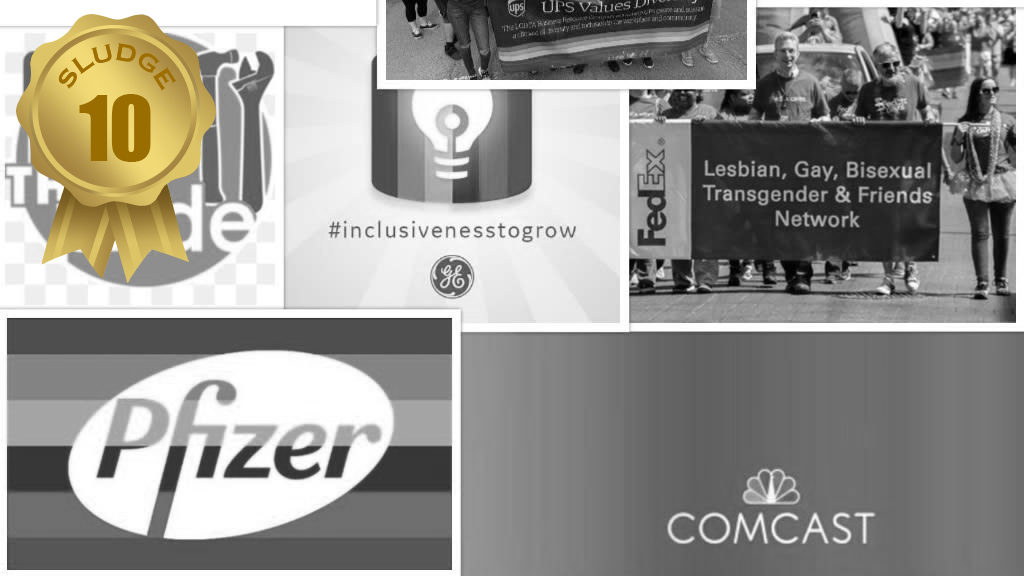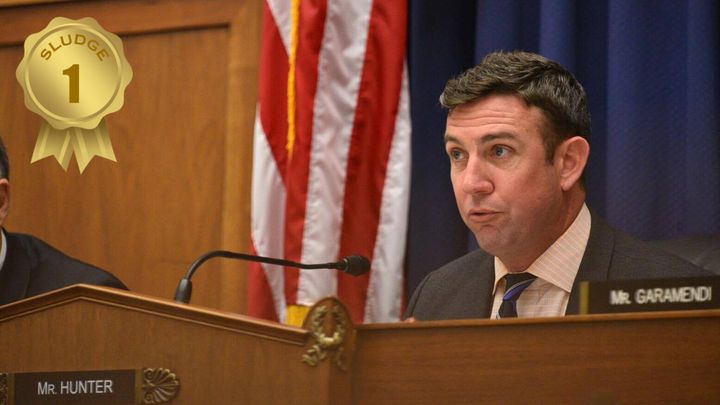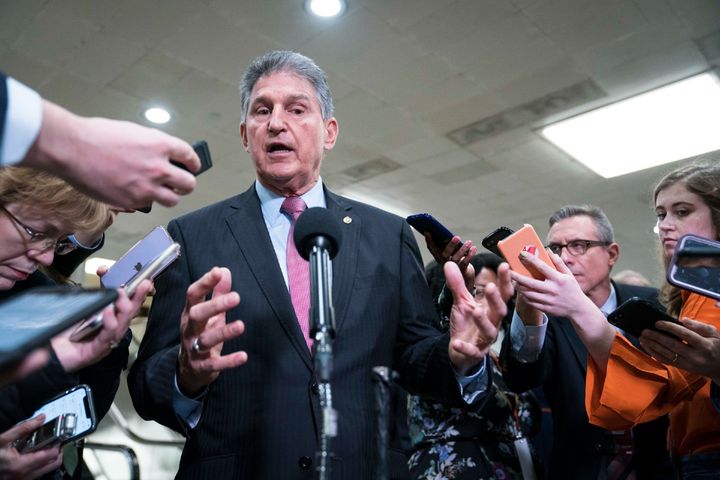
Welcome to the preview edition of the seventh installment of our biweekly, members-only Sludge column to let you know about the sludgiest characters in politics!
Without further ado, here are the 10 sludgiest political forces from the last few weeks.
10. AT&T, Comcast, FedEx, GE, Home Depot, Pfizer, UBS, UPS & Verizon
 Popular Information
Popular InformationSome Fortune 500 companies proudly flew their rainbow flags during Pride Month in June, but they’ve got some explaining to do when it comes to their political donations. The PACs of at least nine major businesses that loudly supported the LGBTQ community during Pride Month donated $1 million or more to the campaigns and leadership PACs of anti-LGBTQ politicians in the 2018 election cycle, according to Popular Information. The companies have lengthy pro-LGBTQ policies and earned perfect scores on the Human Rights Campaign’s 2019 “Corporate Equality Index.” HRC clearly didn’t consider the companies’ PAC donations to federal politicians who scored *zero* on the group’s congressional scorecard. (Popular Information)
9. Florida Democratic Party, private prison opposers?

The Florida Democratic Party passed a resolution in June 2018 forbidding contributions from the private prison industry. And they’ve honored that.
Well, kinda…
Sure, they haven’t accepted donations from the PACs of GEO Group or CoreCivic. But the Miami New Times found out that they took $10,000 from the PAC of G4S Solutions, a Jupiter, Florida-based private security firm that transports immigrants between detention centers and operates private prisons in foreign countries such as the United Kingdom. It really shouldn’t be this hard to reject contributions from a handful of companies that profit from immigrant detention. (Miami New Times)
8. Scott Gottleib, FDA chief-turned-pharma guy

Fresh off of his No. 3 position in the last SLUDGE REPORT, Trump’s former Food and Drug Administration head is already back in action. After resigning in May, Gottlieb is already sitting on pharma giant Pfizer’s board of directors. Sadly, most FDA commissioners join the boards of drug companies after their tenures in government. Sen. Elizabeth Warren (D-Mass.) called on Gottlieb to resign from his new seat on the board of a company his agency oversaw, saying that his position at Pfizer “makes the American people rightfully cynical and distrustful about whether high-level Trump Administration officials are working for them, or for their future corporate employers.” (Stat News)
7. David Vitter, senator-turned-lobbyist

The revolving door between Congress and K Street is really something. Roughly one-third of former House members and nearly 40% of former U.S. senators register as federal lobbyists after their congressional stints. One recent senator, Republican David Vitter of Louisiana, just wrapped up his second post-Senate year, meaning he can now lobby his former colleagues, per ethics rules. Since leaving office in 2017, Vitter was allowed to lobby the Trump administration. Vitter even registered to lobby for companies owned by a Russian oligarch with ties to Vladimir Putin, using his D.C. influence in hopes of easing sanctions on those companies.
Vitter can now lobby Congress on behalf of his clients, including chemical companies, an offshore oil-drilling firm, and a pharmaceutical distributor. As he does so, his congressional relationships give him access to special insider events at the Capitol, such as prayer breakfasts with members of Congress. And he’s not alone: Former senators including Norm Coleman (R-Minn.), Trent Lott (R-Miss.), and Tim Hutchinson (R-Ark.) also walk the halls of Congress, palling around with their former colleagues. (CNN)



